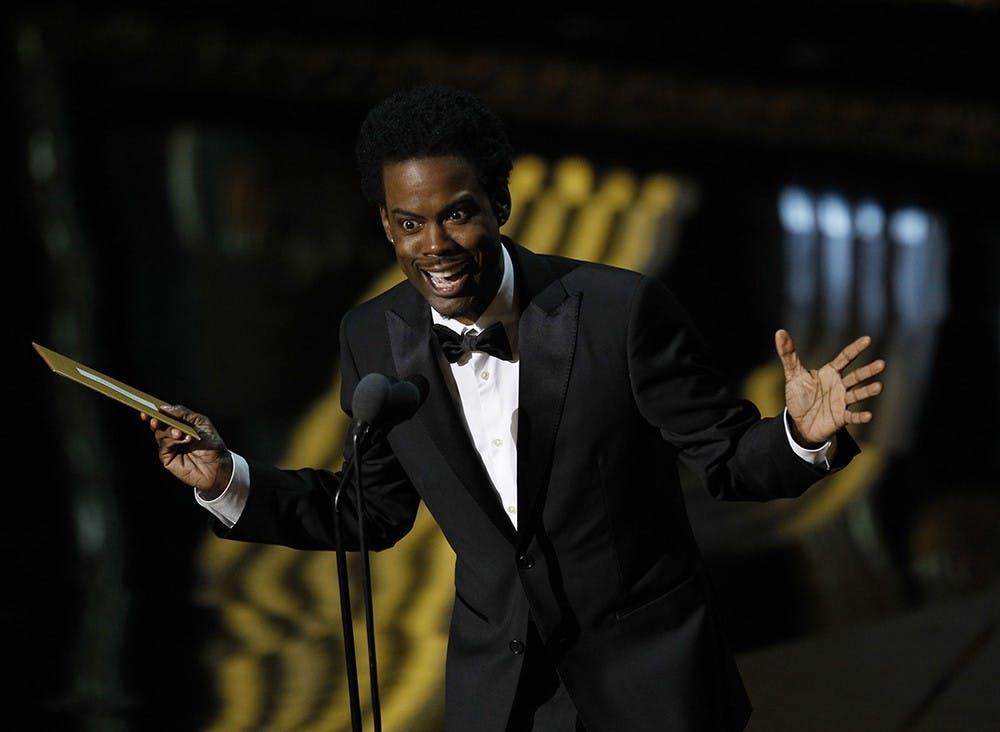For more than 50 years, it’s been a given that if you attend a stand-up comedy show, you’re going to hear some material that’s intended to shock the audience, push the boundaries of good taste and even occasionally violate the unwritten rules of basic human decency. A more recent trend, however, is that it’s becoming increasingly common for young people to take personal offense to the things comedians say.
As a result of this change in attitude, comics Jerry Seinfeld, Chris Rock and Larry the Cable Guy have all been leaving college campuses off of their touring schedules. In an interview for New York Magazine, Rock explained why he no longer plays colleges, saying the students have been, “… raised on a culture of ‘We’re not going to keep score in the game because we don’t want anybody to lose.’ ” ASU is included in this issue because we have not had a comedian visit our campus for quite some time.
The so-called “PC Police” are forgetting that comedians are, for the most part, not expressing their honest, sincere views on these serious societal issues. That’s why comics refer to their performance as their “act.” Generally, comics aren’t trying to convince you to actually believe whatever outlandish claims they’re making; they’re simply trying to get you to laugh at the fact that they’re even entertaining those thoughts in the first place. In an episode of "Comedians in Cars Getting Coffee," Seinfeld compared his work to geometry. He joked with "Tonight Show" host Jimmy Fallon, saying, “Comedy is all angles and proofs. Remember writing proofs? That’s stand up. You say something ridiculous, and then you prove it to be true.”
As comic Joe Rogan so cleverly put it, “Bob Marley never really shot the sheriff.”
Of course, there are exceptions to this rule. One of them is talk show host Bill Maher, who regularly uses his HBO show as a platform to express his genuine political beliefs that could arguably be described as “Islamaphobic.” And given his massive audience the real magnitude of his political influence, including his $1 million donation to a Super PAC supporting President Obama’s 2012 reelection, Maher could be a legitimate target for people who feel that it’s necessary to criticize comedians for promoting hateful ideas. I’m going to be honest, I like Maher’s show. I watch it every week because I think it’s funny. But if people are going to criticize a comedian, they should criticize someone like Maher, who is actively trying to influence his audience’s attitude toward important issues.
When evaluating the majority of comedians, I think it’s important to separate the creator of the material from the content of the material. Since the 1960s, Bill Cosby has been the quintessential example of a comedian who’s known for keeping controversial material out of his act. He often even goes so far to criticize other comics for their material that he finds offensive. Obviously, we shouldn’t judge Cosby based on how “clean” his stand-up performances and television shows are, but by what his actions were when he wasn’t in front of a camera or a microphone.
When we consider real-world violence, income inequality, religious intolerance, racism, sexism, homophobia and every other important social problem, there are so many awful injustices in the world that require our serious attention. Comedians making jokes that make some people feel uncomfortable isn’t one of them.
Reach the columnist at cmfitzpa@asu.edu or follow @CodyFitzStories on Twitter.
Editor’s note: The opinions presented in this column are the author’s and do not imply any endorsement from The State Press or its editors.
Want to join the conversation? Send an email to opiniondesk.statepress@gmail.com. Keep letters under 300 words and be sure to include your university affiliation. Anonymity will not be granted.
Like The State Press on Facebook and follow @statepress on Twitter.
Related Links:
Slacktivism is more than just couches and potato chips
Political correctness: A product of free speech




